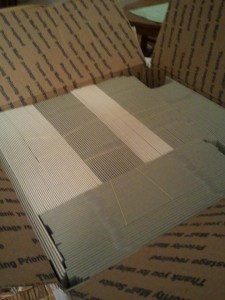I have a Masters of Fine Arts degree in Creative Writing from Sarah Lawrence College. I loved Sarah Lawrence. The Professors truly helped me improve and explore as a writer. I used my degree to start down a career path I find fulfilling. I am very glad I worked towards the degree. However I do not think an MFA is necessarily for most writers.
One of the reasons many writers should not get it is the cost. MFA’s can be prohibitively expensive. Some are available on scholarship, some even involve a stipend and offer teaching experience, most do not. They can put you into debt without necessarily giving you a degree that will help you get out of debt. That doesn’t mean you shouldn’t get an MFA because of the debt that may or not be involved, but that you should enter it into your equation as a writer, because if you have to work that off, you might have even less time to write. Which does not seem worth it to me. Time spent writing, editing, etc, is invaluable, and sometimes that is the most important thing that people take away from the MFA program, so if you can create that time for yourself without the program, and make sure that it is a profitable time in terms of writing, then that should be an option to consider.
Getting an MFA does not guarantee that you will continue writing. Some people I know went into the MFA program thinking it would turn them into someone who writes, outside of the program. In fact the opposite is true, often. Approximately 3 out of 5 people with a MFA degree in creative writing, will stop writing within 5 years of receiving there degree. Those are not good odds. I think that happens because the MFA creates an artificial environment in which you have time to write and also motivation to do so.
It depends a great deal on what you plan to do with an MFA. If you plan to try to publish fiction and non fiction it might help. As a poet I don’t even include it in most of author bios. Not because I am not proud of it, but because I believe my publication list is much more helpful to the editor considering my work. It does allow you to teach. If you want to write and be a professor in college, there is no reason not to pursue an MFA, in my opinion. It also might help you get a job at a literary magazine, but it is not necessary.
Some of the best writers I know do not have an MFA. The most influential professors I had in grad school did not have MFA’s. If you are a good writer, who has a good community around you already, and don’t have any desire to teach, there are very few reasons for you to pursue an MFA.
However if you are a writer who thrives off challenges (as I do), want to teach at the university level, or really feel like you are in need of a good writing mentor, they are worth considering.
